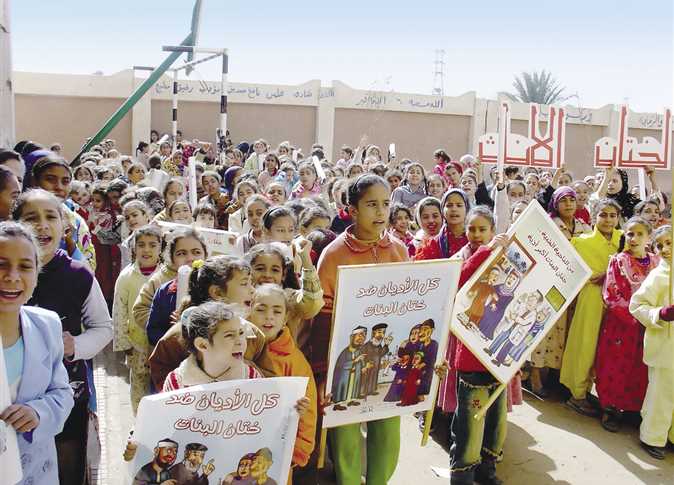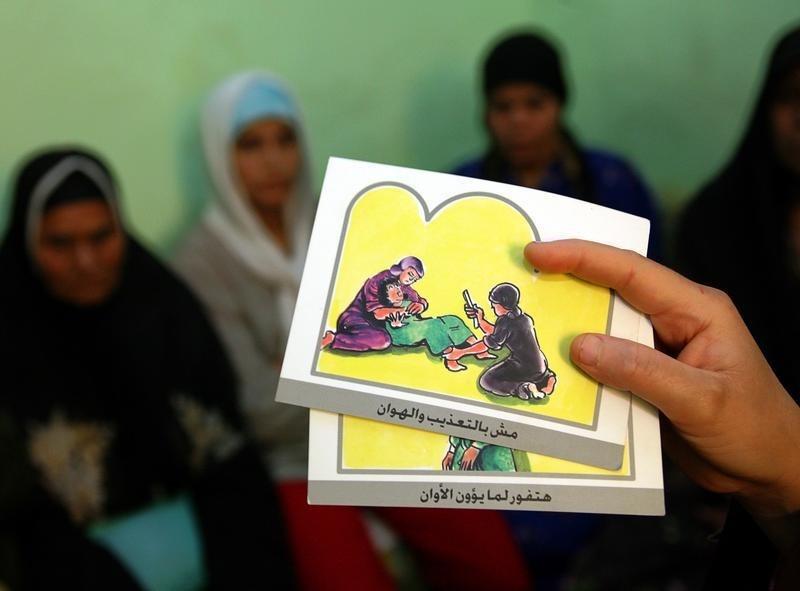
Egypt’s Public Prosecutor Hamada al-Sawy on Wednesday called for harsher punishment for the crime of female genital mutilation (FGM), especially if the perpetrator is a doctor.
Sawy’s comments come after a number of recent instances of FGM that led to the victims’ deaths.
Sawy on Wednesday also pressed charges against a doctor and the father of three girls after investigations that showed that the two men worked together to circumcise the three girls.
The girls said that their father deceived them by saying that the doctor would vaccinate them against coronavirus, but he instead injected them with an anesthetic that made them lose consciousness. When they woke up, they found their legs bound, and felt pain in their genitals.
During police interviews, the girls identified the accused doctor as the perpetrator of the crime.
The girls’ mother — who is divorced from their father — and their aunt confirmed the testimony.
The National Committee on the Eradication of Female Genital Mutilation, headed by the National Council for Women and the National Council for Childhood and Motherhood, praised the public prosecutor’s decision to prosecute the defendants in an urgent criminal trial.
The committee said that Sahar al-Sunbaty, Secretary General of the National Council for Childhood and Motherhood, has been mandated to provide necessary support to the girls.
Chairperson of the National Council for Women Maya Morsi stressed that the committee will not tolerate any violation committed against Egyptian girls and women, and will continue its efforts to protect them from harm.
Egypt’s National Council for Women said in February that it is in the process of studying the article related to FGM in the Penal Code and preparing an amendment proposal to strengthen the existing law, after the death of a twelve-year-old girl who underwent the procedure last month in Egypt sparked renewed efforts to eradicate the practice.
The National Population Council said in 2019 that Egypt ranked first globally in the medicalization of FGM, with 82 percent of girls under age 17 having undergone the procedure. A earlier government survey from 2015 found that 87 percent of all Egyptian women between 15 and 49 years of age have been subjected to genital cutting, despite efforts by the Egyptian government to curb the practice, according to a report from The Associated Press.
Legislation was introduced criminalizing FGM in Egypt in 2008 through amendments to the Child Act (1996) and the Penal Code.
The practice is widespread in Egypt and other parts of Africa and believed by many to be a way to control female sexuality. The move to ban FGM in Egypt in 2008 was opposed by conservative voices at the time.
In December 2016, an Egyptian criminal court sentenced two doctors and the mother of a 17-year-old girl who died after undergoing FGM to one year suspended sentence each, with the verdict drawing a wave of criticism from women’s rights activists, according to the Associated Press.
That same year, Egypt toughened up penalties for those who performed the procedure, with amendments to the anti-FGM law stipulating sentences of five to seven years in prison. Moreover, the 2016 amendments include sentences of 15 years in prison if the procedure leads to the death of the victim or a permanent deformity.
Any individuals who bring victims to have the procedure done in a clinic or other location also face imprisonment of one to three years, in accordance with the law.
Edited translation from Al-Masry Al-Youm




